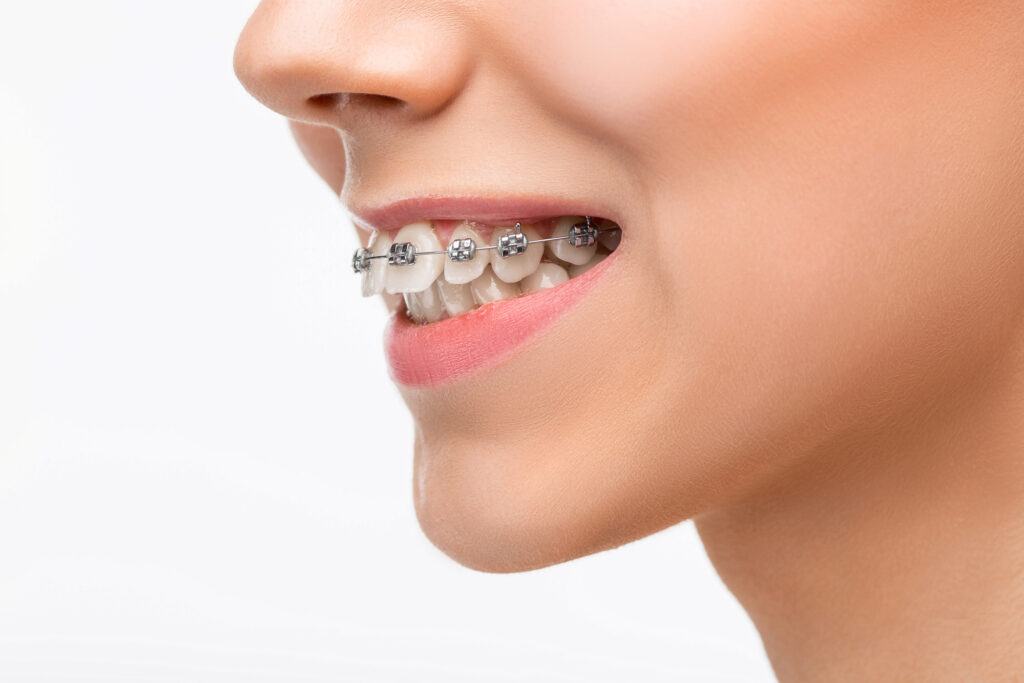
When most people think about having bite issues, such as an overbite or underbite, they consider it a mostly cosmetic issue. However, your bite can affect a lot more than your appearance. In fact, it can have negative impacts on several areas of your life.
What Is Bite?
Bite, also known as occlusion, refers to the way your upper and lower teeth come together when you close your mouth. In other words, the “fit” of your teeth. Ideally, you want your upper and lower teeth to align correctly, allowing for efficient chewing and proper distribution of bite force.
- Overbite: An overbite refers to situations where the top arch of teeth is oriented too far in front of the bottom.
- Underbite: An underbite is the opposite. It is characterized by a protruding lower arch.
- Crossbite: A crossbite occurs where upper teeth lay inside the lower teeth and can occur on either or both sides of the mouth.
- Open Bite: This is a lesser-known situation where upper and lower teeth do not touch.
How Malocclusion Can Impact Your Health
When this alignment is off, there can be serious impacts on how your teeth function.
Cavities
You may think that sugar and poor dental hygiene are the only culprits that contribute to tooth decay, but a misaligned bite can also play a part. When teeth aren’t properly aligned, they can often become difficult to clean. Combine that with the fact that crowded or crooked teeth (which can result from misalignment) trap more food particles, keeping sugars and starches on the tooth surface and leading to cavities.
Gum Disease
For these same reasons, malocclusion can also contribute to gum disease. The same factors that cause cavities also frequently cause plaque and tartar buildup along the gum line and result in gingivitis and, eventually, periodontitis. If left untreated for a long period, periodontal disease has the potential to lead to gum recession and even tooth loss.
Wear
Proper alignment means teeth are less likely to experience excessive wear and tear. When your bite is misaligned, certain teeth may bear more force during chewing, leading to premature enamel erosion, fractures, and even dental sensitivity. A proper bite helps distribute the forces evenly, reducing the risk of these issues.
Chewing and Digestion
Another effect of having an aligned bite is improved chewing ability. When your teeth align correctly, you can chew your food more effectively, breaking it down into smaller particles. This, in turn, aids in digestion, as the digestive enzymes in your stomach can work more efficiently on smaller pieces of food. And improved digestion can have a positive impact on your health.
Jaw Pain and Discomfort
Misaligned bites can cause jaw pain and discomfort, often associated with conditions like temporomandibular joint disorder (known as TMJ or TMD). When your bite is off, it can put unnecessary stress on your jaw joints, leading to pain, headaches, and even clicking or popping sounds. Correcting your bite can alleviate these discomforts and improve your overall quality of life.
Speech Problems
A proper bite not only affects your oral health but also your speech. Misaligned teeth can lead to speech impediments, making it difficult to pronounce certain words or sounds. By improving your bite, you can enhance your speech clarity and boost your confidence in social and professional situations.
Orthodontic Solutions for Proper Bite
Braces and clear aligners are meant to address a multitude of bite issues. They work by applying gentle force to slowly move teeth into a better-aligned position. Correcting bite will help prevent and alleviate the concerns we’ve discussed here.
If you have concerns about your bite, don’t hesitate to contact us for a consultation. We can evaluate your bite and offer orthodontic solutions to improve any bite.





